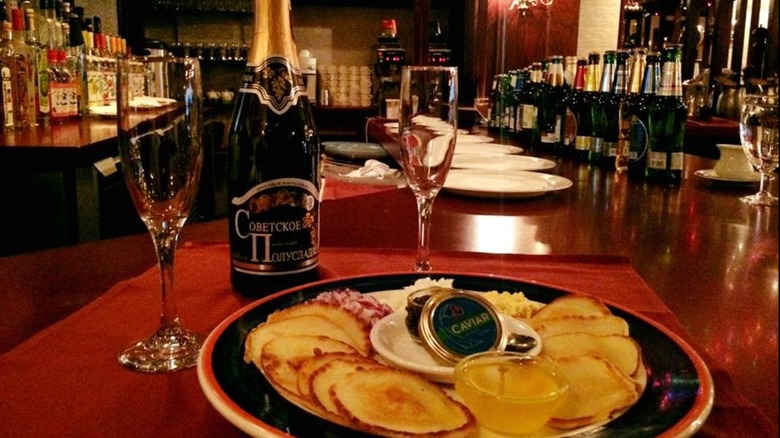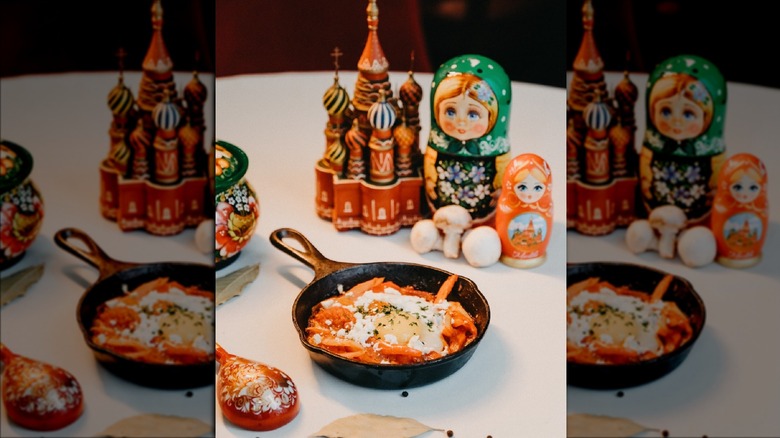How The Ukraine War Is Impacting Russian Restaurants In The US
No matter where in the world there's a war being waged, the U.S. often feels it because of its diverse immigrant communities, many of which represent different sides of varying conflicts. It can be especially difficult when these groups, after many years in the country, have become intertwined to a certain extent. Such a situation certainly exists in the Russian and Ukrainian communities, as any immigrants arriving from those areas between 1922 and 1991 were actually natives of the same country: the former Soviet Union. Whether for reasons historical or economic, many Russian businesses today offer a spectrum of Eastern European goods, including Ukrainian ones, and vice versa.
In the current emotional climate, however, businesses identified with Russia are feeling the pinch. Phoenix grocery Yasha from Russia, a store that carries Ukrainian goods, told Arizona's Family that not only is the war impacting their ability to source the imported products they carry, but they're also struggling with bad Google reviews from people upset by their name. In Milwaukee, a Ukrainian-owned business formerly known as Russian Food & Gifts recently changed its name to European Food & Gifts in a move reminiscent of the renaming of anything German during WWI.
Russian restaurants, which may also be Ukrainian-owned and offer Ukrainian cuisine on their menus, are really taking a hit. Even though many of the restaurant owners are opposed to the war and deeply distressed by the plight of the Ukrainian people, they are still feeling the brunt of the anti-all-things-Russian backlash.
Russian and Ukrainian restaurants are both targets
Ukrainian restaurateur Alan Aguichev told NBC New York that he originally marketed his West Village restaurant Sveta as Russian since, prior to a few weeks ago, he felt that this would reach a larger target audience. Despite the fact that he's got an all-Ukrainian staff, he said that they had been subjected to all kinds of anti-Russian hate. According to Sveta's Facebook page, the restaurant now says it serves "Eastern European cuisine" and has prominently posted images of the Ukrainian flag. Despite taking steps such as changing their menus, The New York Times says that online trolling may be the least of the problems that Sveta and other Russian-identified establishments may face. Reservations are being canceled left and right, and some places, including Midtown piano bar Russian Samovar, have even reported acts of vandalism.
Russian-restaurant hate isn't confined to New York alone, however. Chicago's Russian Tea Time restaurant has also been on the receiving end of ugly social media messages and phone calls, with former customers refusing to patronize the business because they erroneously think it has ties to its namesake country. Ukrainian-born owner Vadim Muchnik told NBC Chicago, "They're kinda misdirecting their frustrations at the businesses that have no direct connections to the Putin regime or to the politics." A message of support for Ukraine was also posted on the restaurant's website.

